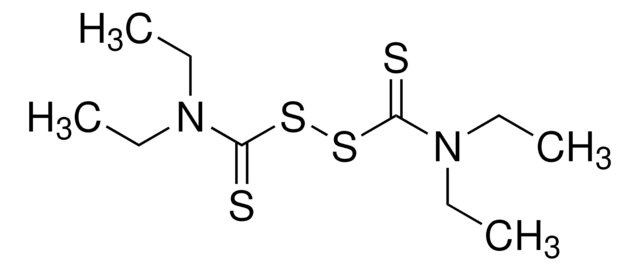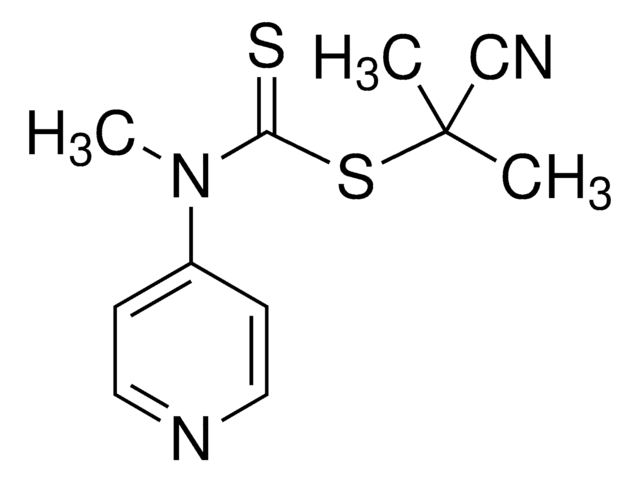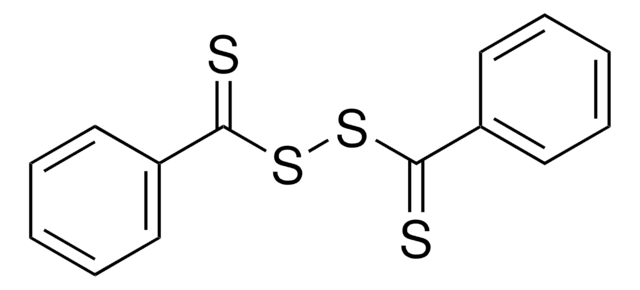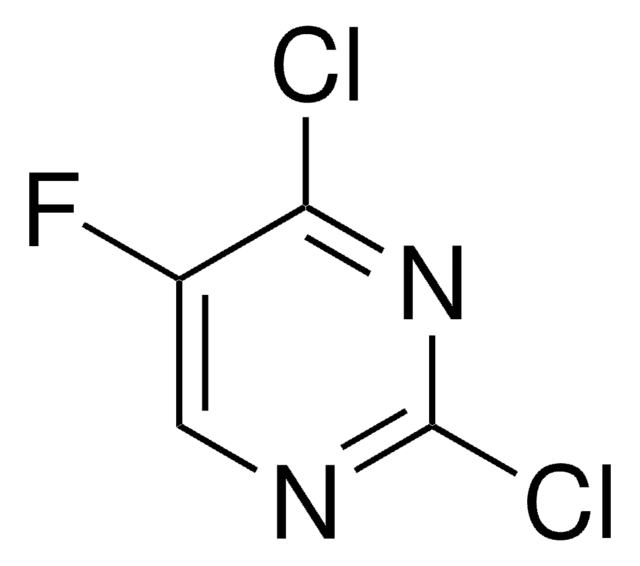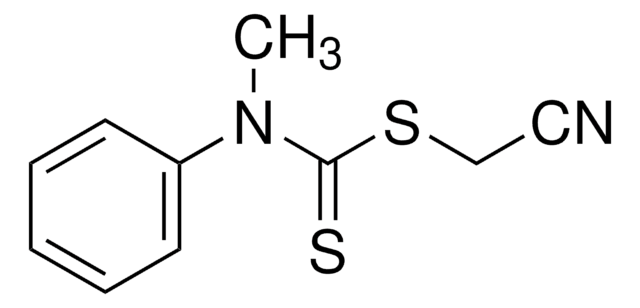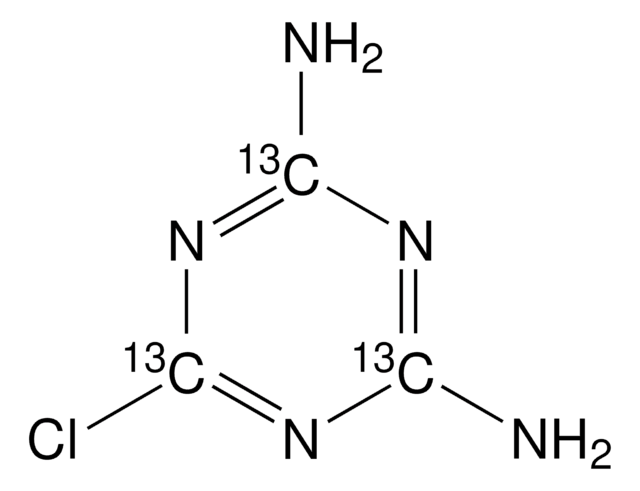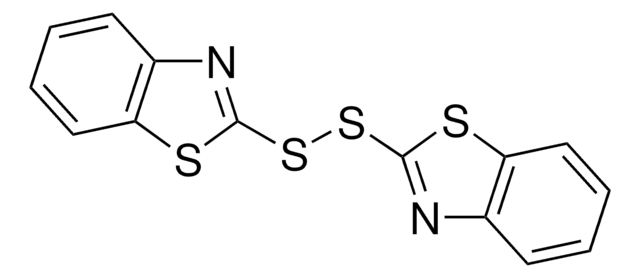Kluczowe dokumenty
735973
N,N′-Dimethyl N,N′-di(4-pyridinyl)thiuram disulfide
Synonim(y):
Bis[methyl-(4-pyridinyl)thiocarbamoyl] disulfide, Bis[methyl-(4-pyridinyl)thiocarbamyl] disulfide
About This Item
Polecane produkty
Formularz
solid
Poziom jakości
mp
118-128 °C
ciąg SMILES
CN(C(=S)SSC(=S)N(C)c1ccncc1)c2ccncc2
InChI
1S/C14H14N4S4/c1-17(11-3-7-15-8-4-11)13(19)21-22-14(20)18(2)12-5-9-16-10-6-12/h3-10H,1-2H3
Klucz InChI
PVZGPMRTEJHLMS-UHFFFAOYSA-N
Powiązane kategorie
Opis ogólny
Wybierz jedną z najnowszych wersji:
Masz już ten produkt?
Dokumenty związane z niedawno zakupionymi produktami zostały zamieszczone w Bibliotece dokumentów.
Klienci oglądali również te produkty
Produkty
Universal (Switchable) RAFT agents allow for the polymerization of both less activated and more activated monomers and are ideal for the synthesis of well-defined block copolymers.
A series of polymerization were carried out using RAFT agents and monomers yielding well-defined polymers with narrow molecular weight distributions. The process allows radical-initiated growing polymer chains to degeneratively transfer reactivity from one to another through the use of key functional groups (dithioesters, trithiocarbonates, xanthates and dithiocarbamates). RAFT agents help to minimize out-of-control growth and prevent unwanted termination events from occurring, effectively controlling polymer properties like molecular weight and polydispersity. RAFT agents are commercially available. RAFT does not use any cytotoxic heavy metal components (unlike ATRP).
We presents an article about a micro review of reversible addition/fragmentation chain transfer (RAFT) polymerization. RAFT (Reversible Addition/Fragmentation Chain Transfer) polymerization is a reversible deactivation radical polymerization (RDRP) and one of the more versatile methods for providing living characteristics to radical polymerization.
Tools for Performing ATRP
Protokoły
We presents an article featuring procedures that describe polymerization of methyl methacrylate and vinyl acetate homopolymers and a block copolymer as performed by researchers at CSIRO.
Sigma-Aldrich presents an article about RAFT, or Reversible Addition/Fragmentation Chain Transfer, which is a form of living radical polymerization.
Polimeryzacja za pomocą procedur ATRP zademonstrowana przez grupę badawczą prof. Dave'a Haddletona z University of Warwick.
Sigma-Aldrich presents an article about the typical procedures for polymerizing via ATRP, which demonstrates that in the following two procedures describe two ATRP polymerization reactions as performed by Prof. Dave Hadddleton′s research group at the University of Warwick.
Nasz zespół naukowców ma doświadczenie we wszystkich obszarach badań, w tym w naukach przyrodniczych, materiałoznawstwie, syntezie chemicznej, chromatografii, analityce i wielu innych dziedzinach.
Skontaktuj się z zespołem ds. pomocy technicznej